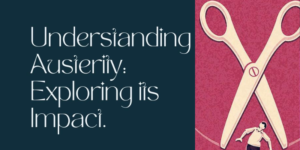In today’s rapidly evolving world, innovation is one of the most critical drivers of organisational success. However, creating an environment that consistently nurtures innovation is a complex challenge. Leaders play a central role in shaping organisational culture by setting the tone, modelling behaviours, and providing structures that encourage creativity and risk-taking (Mansaray & Atan, 2025). This article explores ten practical leadership phrases and strategies that managers can use to foster a culture of innovation, supported by insights from academic literature and industry practice.
1.0 “Your Passion is Contagious.”
Passion fuels creativity. Research shows that when leaders acknowledge and reinforce employees’ enthusiasm, it generates a positive feedback loop, enhancing commitment to new ideas (Amabile & Kramer, 2011). Leaders who express optimism significantly influence team morale (Goleman, Boyatzis & McKee, 2001). For example, in entrepreneurial ventures, leaders who display passion motivate employees to persist through uncertainty and drive innovation (Castro, 2025).
2.0 “How Can We Make This Even Better?”
Continuous improvement is at the core of innovative thinking. This aligns with Kaizen, the Japanese philosophy of incremental progress (Imai, 1986). By encouraging a growth mindset (Dweck, 2017), leaders foster resilience and problem-solving. In digital transformation projects, Ogungbe and Ikuabe (2025) found that organisations that regularly challenged processes were more adaptive to technological change.
3.0 “You Have the Freedom to Experiment.”
Freedom and psychological safety underpin creative risk-taking. Edmondson (1999) highlights that employees are more innovative when they feel safe to make mistakes. Leaders who grant autonomy foster ownership, boosting innovative behaviours (Deci & Ryan, 2000). In healthcare, Pilosof et al. (2025) demonstrated that communities of practice encouraging experimentation fostered digital resilience and transformation.
4.0 “Let’s Focus on Progress, Not Perfection.”
Perfectionism stifles innovation, whereas iterative learning drives it. Agile methodologies emphasise incremental progress over flawless outputs (Rigby, Sutherland & Takeuchi, 2016). By shifting focus from perfection to learning, leaders encourage experimentation. Tech firms like Spotify use iterative project models that prioritise adaptability, fostering a sustainable culture of innovation (Nurhikmah, Jam’an & Ahmad, 2025).
5.0 “I Believe in Your Ability to Create Change.”
Expressing belief in employees enhances self-efficacy (Bandura, 1997). Leaders who demonstrate confidence in their teams inspire risk-taking and creativity, aligning with transformational leadership principles (Bass & Riggio, 2006). For instance, Mansaray and Atan (2025) found that university leaders who inspired belief in staff improved research-led innovation and CSR initiatives.
6.0 “I’m Excited to See What You’ll Come Up With.”
Leaders who show anticipation and enthusiasm signal that innovation is valued. Amabile (1998) argues that recognising and celebrating creativity motivates employees to continue generating ideas. In SMEs, Al (2025) found that digital leadership enthusiasm was crucial for fostering employee engagement and organisational innovation.
7.0 “Don’t Be Afraid to Take Risks. I Got Your Back.”
Risk-taking is at the heart of innovation. Hofstede (2001) argues that cultures with low uncertainty avoidance are more likely to innovate. Leaders who communicate support for experimentation reduce fear of failure, enabling teams to take calculated risks (Attique, Hameed & Ahmed, 2025). For example, in tech start-ups, leaders’ assurance of support often results in breakthrough solutions.
8.0 “Let’s Celebrate the Breakthroughs We’ve Made.”
Recognition reinforces behaviour. According to Skinner’s (1953) behavioural theory, rewarding innovation encourages repetition. Celebrating even small wins strengthens a culture where creativity is integral (Amabile, 1998). Cheong (2025) notes that family firms that celebrated incremental innovations achieved higher adaptability in competitive markets.
9.0 “Take The Lead on This; You Know What Works Best.”
Delegating responsibility builds trust and autonomy, both essential for innovation. Deci and Ryan (2000) argue that autonomy fosters intrinsic motivation. Ejiofor (2025) found that leaders who encouraged diverse employees to take ownership of projects enhanced organisational innovation capacity. In practice, organisations like Google empower staff with “20% time” to pursue projects, leading to breakthroughs such as Gmail.
10.0 “How Can We Turn This Challenge into an Opportunity?”
Reframing challenges cultivates resilience and creativity. Kotter (1996) emphasises that visionary leaders view crises as opportunities. Leaders who encourage teams to find solutions build adaptability in uncertain contexts (Verhaagen, 2025). For instance, during the COVID-19 pandemic, many firms reframed supply chain disruptions into opportunities for digital transformation.
Fostering a culture of innovation requires more than policies; it demands intentional leadership practices. Leaders shape innovation by providing psychological safety, encouraging risk-taking, celebrating progress, and reinforcing belief in employees’ abilities. The ten leadership phrases outlined here represent not just words but a deeper philosophy of empowerment, growth, and resilience.
As research indicates, transformational leadership, visionary communication, and employee empowerment are essential to creating innovative organisational cultures (Mansaray & Atan, 2025; Al, 2025). Managers who adopt these practices cultivate workplaces that thrive in uncertainty and continuously adapt to global challenges.
By focusing on progress rather than perfection, granting freedom to experiment, and celebrating small wins, leaders build dynamic organisations prepared for long-term success in a world defined by constant change.
References
Amabile, T. M. (1998) How to kill creativity. Harvard Business Review, 76(5), pp. 76–87.
Amabile, T. M. & Kramer, S. J. (2011) The Progress Principle: Using Small Wins to Ignite Joy, Engagement, and Creativity at Work. Harvard Business Press.
Attique, A., Hameed, F. & Ahmed, M. (2025) Ambidextrous leadership and innovative work behaviour: A case study of Pakistani hospitals. Research Journal for Social Affairs. Available at: https://rjsaonline.com/journals/index.php/rjsa/article/view/366
Bandura, A. (1997) Self-efficacy: The exercise of control. W.H. Freeman.
Bass, B. M. & Riggio, R. E. (2006) Transformational Leadership. Lawrence Erlbaum Associates.
Castro, A. (2025) Navigating innovation in SMEs for sustainable business ventures. East Asian Journal of Multidisciplinary Research. Available at: http://mtiformosapublisher.org/index.php/eajmr/article/view/353
Cheong, W.K. (2025) Risk management and innovation in family firms. TAR UMT Institutional Repository. Available at: https://eprints.tarc.edu.my/33774/
Deci, E. L. & Ryan, R. M. (2000) The “what” and “why” of goal pursuits: Human needs and self-determination. Psychological Inquiry, 11(4), pp. 227–268.
Dweck, C. S. (2017) Mindset: Changing the way you think to fulfil your potential. Robinson.
Edmondson, A. (1999) Psychological safety and learning behaviour in work teams. Administrative Science Quarterly, 44(2), pp. 350–383.
Goleman, D., Boyatzis, R. & McKee, A. (2001) Primal Leadership: Unleashing the Power of Emotional Intelligence. Harvard Business Press.
Hofstede, G. (2001) Culture’s Consequences: Comparing Values, Behaviors, Institutions and Organizations across Nations. Sage.
Imai, M. (1986) Kaizen: The Key to Japan’s Competitive Success. McGraw-Hill.
Mansaray, I. & Atan, T. (2025) Transformational leadership, innovation, and CSR in public universities. Sustainability, 17(17), 7653.
Nurhikmah, N., Jam’an, A. & Ahmad, A. (2025) The influence of leadership and organisational culture on innovation. Journal of Public Research and Service Policy. Available at: http://www.psppjournals.org/index.php/jprsp/article/view/602
Ogungbe, M.A. & Ikuabe, M. (2025) Assessing organisational readiness for digital transformation. Proceedings of the 13th International Construction Conference. ResearchGate.
Pilosof, N.P. et al. (2025) Building digital resilience through online communities. Frontiers in Digital Health, 5, 1656804.
Rigby, D. K., Sutherland, J. & Takeuchi, H. (2016) Embracing Agile. Harvard Business Review, 94(5), pp. 40–50.
Skinner, B. F. (1953) Science and Human Behaviour. Macmillan.
Verhaagen, D. (2025) Practice innovations and visionary leadership. ProQuest.









